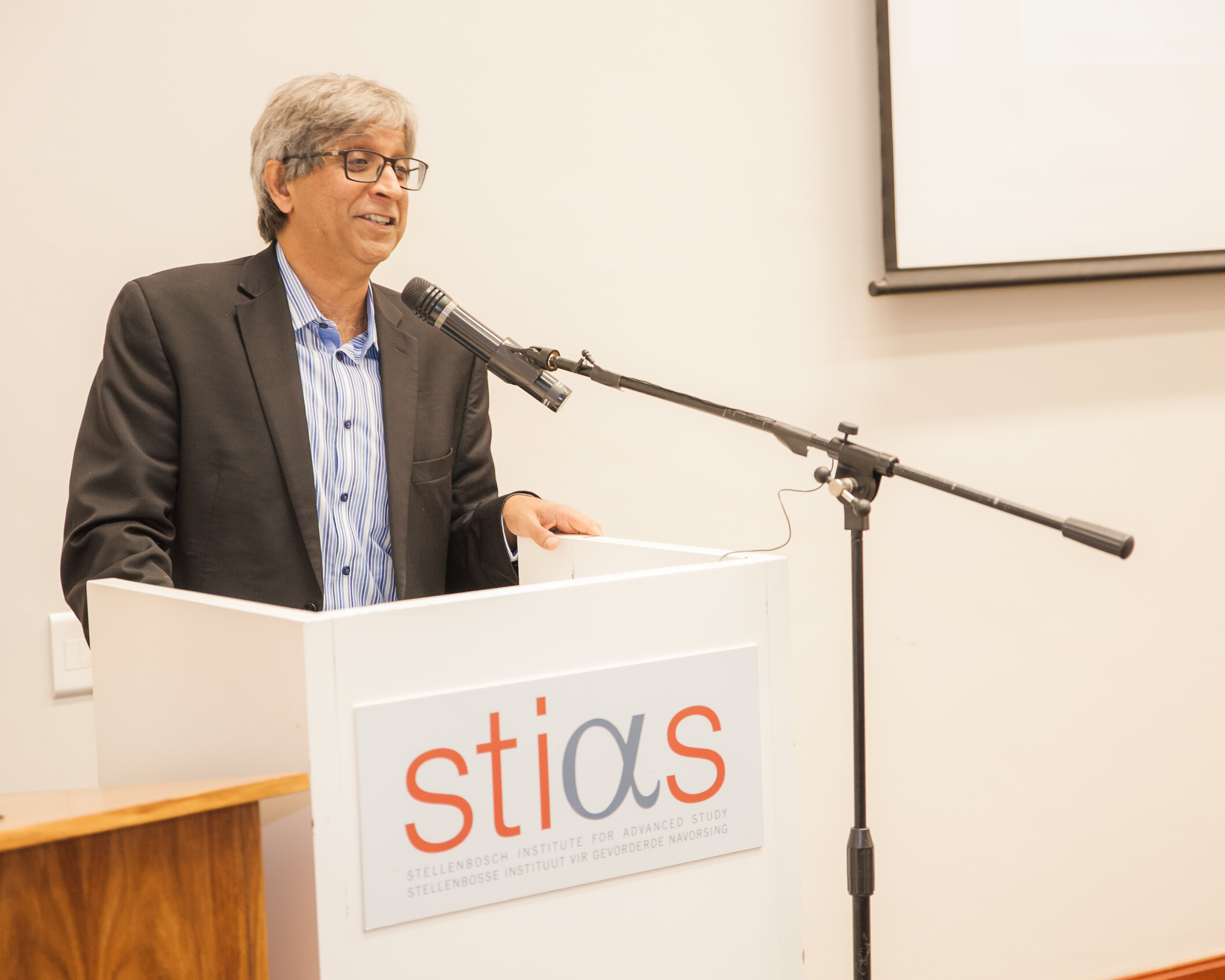Adam Habib, Chair of Universities South Africa (USAf) and Vice-Chancellor of the University of Witwatersrand, delivered the keynote speech at the opening of the 3rd Global Summit on Student Affairs and Services, at the Stellenbosch Institute for Advanced Study (STIAS) on Thursday (27 October).

Adam Habib addressing the audience. Photography: Silver Line Photography.
"We currently live in a historic moment, where the global education system holds enormous force. Yet simultaneously it's beset with enormous challenges," Habib said. "It's often been said that we won't survive as a human species in the 21st century if we do not come together as a global citizenry, and as a global academy. All of challenges – inequality, terrorism, public health, climate change – are all transnational in character, and all require multinational teams that come together and tackle these challenges."
Watch highlights from the summit here:
Invited representatives from 19 countries working in the rapidly developing area of student affairs and services are gathering in Stellenbosch this week to attend the bi-annual Global Summit on Student Affairs and Services.
The Summit brings together key leaders in student affairs and services from around the globe to engage in dialogue around critical issues in student affairs and services. It is the third event of its kind with the first event held in Washington in 2012 and the second in Rome in 2014.
Habib reflected on the #FeesMustFall movement that has sparked anew on campuses around the country, and its relevance on the global stage.
"We're currently undergoing huge student protests, and I want to reflect on this. You may ask, why should I reflect on a South African struggle at a global summit? My answer is South Africa is a microcosm of our world," he said.
"It is an acute manifestation of the challenges that confront us all, and it's a harbinger of what's likely to confront all of you in the years ahead. Think about the social movement Black Lives Matter. Think about the problem $1.3 trillion in University debt in the United States alone. The same is true in much of Europe, Asia, Middle East and Latin America. An intergenerational conflict is playing itself out, mostly on the campuses of universities."
"Let me state that I think the struggle of students is a noble one," he continued. "For 20 years I've been a political scientist, and I've been predicting a social explosion. As much as I think these struggles are noble and important, I think we need to ask strong questions about the tactics of the movement. As much as there is legitimacy of this struggle and the ideals of fees must fall, you must have the political courage to confront when its tactics are not conducive to the realisation of that struggle."
He concluded by considering the path forward for practitioners within student affairs.
"If you truly want internationalisation that is committed to social equality and inclusion, you need to create scholars and students across the globe to come together, and jointly undertake research and teaching. If we begin to pioneer a global academy of commons of university scholars and students, coming together and saying 'we have a common community across our institutional boundaries', you can create the foundational elements of a common global citizenship. We really need some heavy interrogation on what internationalisation means."
"In a university you learn as much outside the classroom as in the classroom," he said. "You learn principles of social justice and solidarity, and you learn how to be a citizen of your nation and a citizen of the world. These are issues that all of you are going to be at the forefront of. You're visiting a country that bequeathed to the world that icon of peace – Nelson Mandela. If you want to honour his memory, take seriously the mandate of his life: establish the foundational elements of a universal citizenship. It is only through this construction of being a citizen of the nation and a citizen of the world that we will truly survive as a human species in the 21st century. On our campuses, you will be at the forefront of this struggle."
Read Habib's full speech here.
The delegates will continue to grapple with the programme's theme - the UNESCO Operational Strategy on Youth (Medium Strategy 2014-2021 with focus on Access and Gender) – on Friday (28 October).
More than 50 specifically invited thought-leaders from higher education from countries from across regions and continents will participate in the event.
Apart from dignitaries from NASPA and IASAS, Mr Yousaf Gabru, Chairperson of the South African National Commission for UNESCO, and those representing among others the European Council on Student Affairs, the Southern African Federation for Student Affairs and the Academic Association of Student Affairs (USA) will be in attendance.
Included in the programme is a student panel consisting of 6 students who will share their experiences in the impact of Student Affairs on their lives and studies, and how Student Affairs has enabled them to promote values of human rights, equity and justice.

